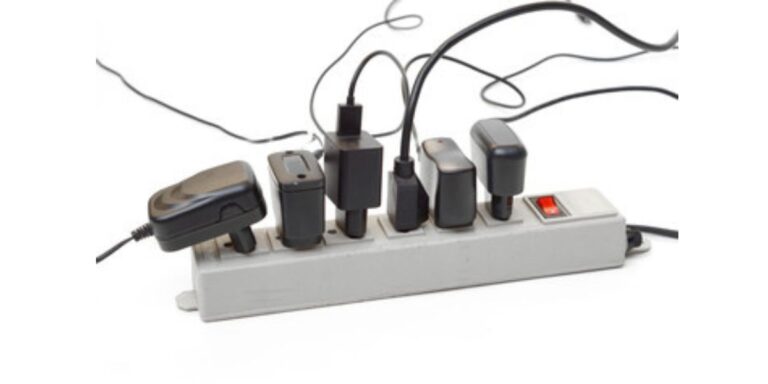Exploring Privilege: Unpacking the Intersectionality of Being a Cis Man
Welcome to our blog post on the fascinating and thought-provoking topic of privilege and intersectionality. Today, we will be unpacking the complex layers that come with being a Cis Man in society. Cis men, like all individuals, have their own unique experiences and challenges shaped by various aspects of their identity.
In this article, we aim to delve into the depths of what it means to navigate life as a cis man, exploring both societal advantages and the nuanced intersections that shape these experiences.
Understanding Cisgender
Cisgender is a term that refers to individuals whose gender identity aligns with the sex they were assigned at birth. In simpler terms, if you were assigned male at birth and identify as a man, or if you were assigned female at birth and identify as a woman, then you are cisgender. It’s important to note that being cisgender is just one aspect of our identities and does not define us entirely.
The concept of cisgender emerged as part of ongoing conversations about gender diversity and inclusivity. It helps us understand that gender identity exists on a spectrum beyond just male or female. By acknowledging the experiences of those who do not conform to societal norms regarding gender, we create space for everyone to express their authentic selves.
Recognizing and understanding cisgender privilege is essential in dismantling systems of oppression and promoting equality for all genders. While being cisgender comes with its own set of challenges, it’s crucial to acknowledge the privileges afforded by society simply because our gender identities align with societal expectations.
By delving deeper into what it means to be cisgender, we can gain insight into the complexities surrounding gender identity and work towards creating a more inclusive world where everyone feels seen, heard, valued – regardless of how they identify.
The History of the Term Cisgender
The term “cisgender” is relatively new in our vocabulary, but it carries significant weight in discussions around gender identity. The history of this term is rooted in the need for language that accurately represents individuals who identify with the gender they were assigned at birth.
Originally coined by German sexologist Volkmar Sigusch in 1991, “cisgender” emerged as an alternative to the previously dominant language that labeled people as “normal” or “non-trans.” It comes from Latin roots – “cis,” meaning “on this side,” and “gender,” referring to one’s internal sense of being male, female, or something else.
Since its introduction, cisgender has gained recognition and acceptance within academic circles and social justice movements. It allows us to acknowledge and understand the experiences of those whose gender identity aligns with societal expectations. By recognizing cisgender privilege, we can work towards a more inclusive society where everyone’s experiences are valued and respected.
Exploring the Intersectionality of Being a Cis Man
Being a cis man is more than just identifying with the gender assigned at birth. It encompasses a complex web of intersecting privileges and experiences that shape one’s life. Understanding this intersectionality is crucial in dismantling societal inequalities.
One aspect to consider when exploring the intersectionality of being a cis man is reproductive health. If you have a uterus and ovaries, your experience will be different from those who do not possess these organs. This can impact various areas such as fertility, contraception choices, and overall healthcare needs.
On the other hand, if you no longer have or were not born with a uterus, your experience as a cis man will differ again. The absence of this organ may affect your understanding and perspective on topics like pregnancy, childbirth, and postpartum care.
These are just some examples of how intersecting factors influence the lived experiences of cis men. By acknowledging these nuances, we can begin to challenge our own biases and work towards creating a more inclusive society for all individuals regardless of their gender identity or expression.
If you have a uterus and ovaries
If you have a uterus and ovaries, your experience as a cis man may be influenced by the unique challenges and privileges associated with reproductive organs typically found in individuals assigned female at birth. Understanding these complexities is essential when exploring the intersectionality of being a cis man.
Having a uterus and ovaries means that you may face societal expectations related to fertility, menstruation, and reproductive health. These expectations can shape how others perceive your masculinity and influence your own self-perception. It’s important to recognize that not all cis men have these experiences, but for those who do, it adds another layer to their understanding of their gender identity.
Navigating healthcare systems can also present challenges for cis men with uteruses and ovaries. Accessing appropriate medical care, including gynecological exams or contraception options tailored to individual needs, may require additional effort due to the assumption that such services are primarily intended for women. This underscores the importance of creating inclusive healthcare environments where everyone feels comfortable seeking the care they need.
Regardless of whether or not you have a uterus and ovaries as a cis man, acknowledging these differences fosters empathy towards those whose experiences diverge from our own. By recognizing the intersectionality within gender identities, we can promote inclusivity while challenging societal norms that restrict our understanding of what it means to be male or masculine.
If you no longer have or were not born with a uterus
If you no longer have or were not born with a uterus, your experience as a cis man may differ in certain aspects. The absence of a uterus means that you won’t have to navigate the complexities of reproductive health and the physical and emotional journey of pregnancy. This can be both a relief and an acknowledgment of privilege.
Without a uterus, you are spared from experiencing the challenges associated with menstruation, such as cramps, mood swings, and other discomforts. While these experiences may seem insignificant to some, they can significantly impact the daily lives and well-being of individuals who do have uteruses.
Additionally, not having a uterus means that you don’t face the possibility of fertility issues or complications related to reproductive organs. This aspect is often taken for granted but can profoundly affect people’s lives when they desire or struggle with conceiving children. Understanding these differences helps shed light on how privilege intersects with being a cis man without a uterus.
Conception and Being a Cis Man
So, let’s talk about conception and being a cis man. Now, it’s important to remember that when we say cis man, we’re referring to someone who identifies as the gender they were assigned at birth. And while cis men may not experience pregnancy themselves, their role in the process of conception is undeniably significant.
When it comes to reproduction, cis men play a crucial part in fertilization. Sperm cells from a cis man are needed for conception to occur. These tiny swimmers make their way through the female reproductive system with one goal in mind: reaching an egg and initiating the creation of new life.
While some may argue that this limited involvement diminishes the significance of being a cis man in terms of reproduction, it’s essential to recognize that every step in creating life is meaningful and interconnected. The act of contributing genetic material during conception underscores the complex web of relationships between individuals involved in human reproduction.
This discussion isn’t about placing value on certain experiences or diminishing others; rather, it aims to shed light on different aspects of privilege and intersectionality within our society. Understanding these nuances can help us foster empathy and create a more inclusive world for everyone.
Pregnancy and Being a Cis Man
When we think of pregnancy, the image that often comes to mind is that of a cisgender woman carrying a child. However, it’s important to recognize that cis men can also experience pregnancy in unique ways. Yes, you read that right! Cisgender men can become pregnant too.
For those who have a uterus and ovaries, conception is possible through sexual intercourse or assisted reproductive technologies. This means that cis men with these reproductive organs have the potential to create life just like cis women.
Once conceived, the journey of pregnancy for a cis man involves various stages – from the excitement of finding out they are expecting to navigating the physical changes their body goes through. Delivery brings its own set of challenges and emotions. And let’s not forget about postpartum, where parental responsibilities kick in alongside recovery.
The experience of pregnancy as a cis man extends beyond traditional methods as well. Thanks to advancements in medical science, procedures such as uterus transplants or using abdominal cavities enable some individuals without uteruses to carry pregnancies too. These options provide opportunities for diverse experiences within the realm of being a cis man.
Being aware of all these aspects helps us delve deeper into understanding privilege and intersectionality when exploring what it means to be a cis man experiencing pregnancy. It opens up conversations on gender roles, societal expectations, and challenges faced by individuals who may not fit neatly into predetermined categories based on sex assigned at birth.
Delivery
When it comes to the intersectionality of being a cis man, one aspect that may not immediately come to mind is delivery. Yes, we’re talking about childbirth! While cis men don’t experience pregnancy themselves, they may be involved in the process of delivering their child.
During delivery, a cis man might provide emotional support for their partner or make decisions regarding pain management options. They can play an active role in advocating for their partner’s needs and preferences during this transformative moment.
In some cases, a cis man may even be responsible for physically catching their baby as it enters the world. This intimate act can create a deep bond between father and child from the very first moments of life outside the womb. The journey of delivery is just one more facet that highlights both the unique experiences and privileges associated with being a cisgender man.
Postpartum
Postpartum is a critical period that follows childbirth, and it brings its own unique challenges for cis men who have given birth. During this time, the body goes through significant changes as it recovers from the physical stress of pregnancy and labor. Cis men may experience hormonal fluctuations, fatigue, and emotional adjustments as they adapt to their new role as parents.
In the postpartum period, cis men might also face societal expectations and pressures regarding their parenting abilities. Traditionally, mothers are often expected to take on the primary caregiving role while fathers play a secondary role. However, as gender roles continue to evolve, more cis male parents are actively involved in childcare responsibilities.
Navigating this new terrain can be overwhelming for cis men during the postpartum phase. It’s essential to recognize and support them in this journey by providing access to resources like support groups or counseling services that can help them cope with any emotional or psychological challenges they may encounter during this time.
Pregnancy via uterus transplant
Pregnancy via uterus transplant is a groundbreaking medical procedure that challenges traditional notions of gender and parenthood. It offers hope and possibilities for individuals who were not born with a uterus but still wish to experience the joy of carrying a child.
The procedure involves transplanting a healthy uterus from a donor into the recipient’s body, allowing them to conceive and carry a pregnancy to term. This incredible advancement in reproductive medicine opens up new doors for cisgender men. Who may have previously thought that biological pregnancy was impossible for them.
However, it’s important to acknowledge that this procedure is complex, expensive, and not accessible or feasible for everyone. It also raises ethical questions about organ donation and allocation. Nonetheless, it serves as another example of how society is expanding its understanding of what it means to be pregnant and challenges traditional gender roles in parenting.
Pregnancy via uterus transplant represents an exciting development in reproductive medicine that allows cisgender men. The possibility of experiencing pregnancy firsthand. While this option may not be available or suitable for everyone. It highlights the importance of recognizing diverse experiences within the realm of parenthood and challenging societal norms around gender roles.
Pregnancy via abdominal cavity
Pregnancy via abdominal cavity is a unique concept that challenges traditional notions of gender and reproduction. In this method, a person who was not born with or no longer has a uterus can still experience the miracle of pregnancy. How does it work? Well, instead of carrying the baby in the womb, the fertilized egg is implanted into another area within the body. Such as the abdominal cavity.
This groundbreaking procedure opens up new possibilities for individuals who identify as cis men to start their own families. However, it’s important to recognize that this method may come with its own set of medical risks and considerations. The process requires careful monitoring by healthcare professionals to ensure both the parent and baby are healthy throughout each stage of development.
While pregnancy via abdominal cavity may be an option for some cisgender men. It’s essential to approach this topic with sensitivity and respect. Each person’s journey towards parenthood should be celebrated regardless of their gender identity or how they choose to conceive. It’s crucial for society to understand and support these diverse experiences without judgment or discrimination.
The Bottom Line: Examining Privilege as a Cis Man
As we delve deeper into the intersectionality of being a cis man. It becomes crucial to examine the concept of privilege. Privilege is not about blaming or shaming individuals, but rather recognizing. The inherent advantages that come with certain aspects of our identity.
Being a cisgender man means living in a society where your gender identity aligns with societal norms and expectations. This privilege affords cis men certain benefits and opportunities that may not be readily available to those who do not identify as cisgender.
However, it is important to note that privilege is multifaceted, and its impact varies depending on other intersecting identities. Such as race, class, sexuality, ability, and more. Recognizing one’s privilege does not diminish personal struggles or challenges faced by individuals. Instead, it serves as an opportunity for self-reflection and understanding how systems of power operate.
Understanding one’s own privilege as a cis man allows for empathy towards those who face discrimination due to their gender identity or lack thereof. It also opens up avenues for allyship and advocacy efforts aimed at creating a more inclusive society for all genders. By examining our privileges honestly and critically engaging with these conversations surrounding intersectionality, we can work towards dismantling oppressive structures while striving for equality and justice.
Conclusion
In exploring the intersectionality of being a cis man, it is important to acknowledge and understand privilege. As cisgender individuals, we benefit from societal norms that align with our gender identity, often without even realizing it. This privilege extends beyond simply identifying as male.
From conception to pregnancy, there are unique experiences that cis men will never encounter due to their biology. However, this does not invalidate or diminish their role in promoting equality and dismantling gender-based discrimination.
By recognizing and unpacking our own privileges, we can become more informed allies and advocates for marginalized communities. It is crucial for cis men to listen to the voices of transgender individuals. And people with different lived experiences than our own. Amplifying their stories instead of speaking over them.
Let us use our privilege not only to uplift those who have been historically marginalized but also challenge traditional notions of masculinity. That may perpetuate harmful stereotypes or expectations.
Understanding the complexity of gender allows us all to cultivate empathy, compassion, and allyship across diverse identities. Together, let’s strive for a world where everyone can exist authentically and be valued for who they truly are – regardless of whether they identify as cis mannen or otherwise.







